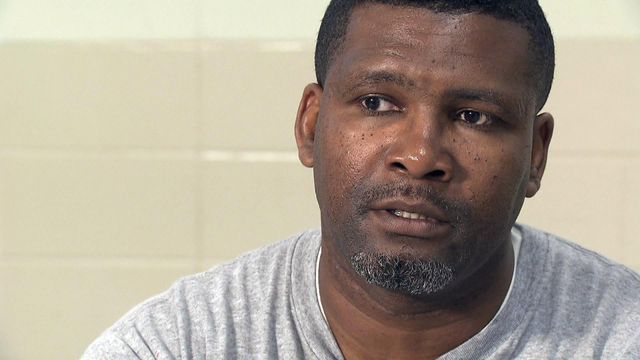Convicted murderer says he never shot Michael Jordan's father
A man serving life in prison for the murder of Michael Jordan's father continues to maintain his innocence, saying Monday that he's hopeful he will be exonerated in a new trial.
Posted — UpdatedDaniel Green has repeatedly sought a new trial over the past two decades by challenging blood evidence, witness testimony and juror conduct, as well as alleging police corruption.
The North Carolina Center on Actual Innocence, which has helped exonerate several wrongly convicted men in recent years, took on Green's case last year, and Superior Court Judge Winston Gilchrist has been appointed to handle Green's motion for appropriate relief, although no date for a hearing has been set.
James Jordan was killed on July 23, 1993, in North Carolina, and his body was found 11 days later in a South Carolina swamp.
Green and Larry Demery were convicted in 1996, but Demery testified at their trial that Green was the one who shot Jordan as he slept in his luxury car in Robeson County.
"I’ve never killed anybody," Green told WRAL News in an exclusive interview at Lumberton Correctional Institution. "I didn’t kill James Jordan. I’m innocent. I’m innocent of murder."
Demery came to his house in the middle of the night and said he shot someone in self-defense and needed help getting rid of the body, Green said.
"I helped him put the body inside of the car," Green said, adding that they drove it to a spot that Demery picked out to dump the body.
The two teens then drove around in James Jordan's Lexus and wore his watch and an NBA championship ring he was given by his son.
"You have two young kids driving around in a Lexus, and this Lexus belongs to this body they find. So, therefore, case solved. Tunnel vision starts right from the beginning," said Christine Mumma, executive director of the Center on Actual Innocence.
Mumma said the case is rife with errors that should allow a new trial, but it's been a long slog for Green to get to this point. One court-appointed lawyer pulled out of the case, and state lawmakers last year eliminated funding for emergency judges to handle such cases. One of those emergency judges had been handling Green's motion, so it had to be reassigned to Gilchrist.
"People are afraid to touch the case," Mumma said. "Nobody wants to upset Michael Jordan, but that really is irrelevant in this case."
Green's defense contends the state's case that James Jordan was shot in his car isn't supported by the evidence, noting that a state blood analyst couldn't confirm a stain inside the car was blood and that the medical examiner never found a hole in James Jordan's shirt to correspond with his fatal wound.
"I think the problem has been the same from the beginning of the case, which is human bias and tunnel vision, and it continues to this day," Mumma said.
The state Attorney General's Office is handling Green's case now, but the original prosecutor, Johnson Britt, said he doesn't think Green deserves another trial.
"He got a fair trial the first time around. I don’t see any issues they raised that would result him getting a new trial now," Britt said.
Green, now 43, said he regrets his actions 25 years ago and is putting his faith in Mumma and the justice system.
"I can’t apologize for a murder I didn’t commit. The only thing I can speak to is what I did," he said. "I’m sorry for what I did."
If cleared, he said he wants to become an advocate for the wrongly convicted, maybe even go to law school to represent them.
"I’m not a perfect person. I’ve made mistakes. Being that I’ve made those mistakes – we all make mistakes – I have an obligation to society when I return," he said. "That’s what I’m fighting for. I’m not fighting to be free just to be free."
• Credits
Copyright 2024 by Capitol Broadcasting Company. All rights reserved. This material may not be published, broadcast, rewritten or redistributed.






